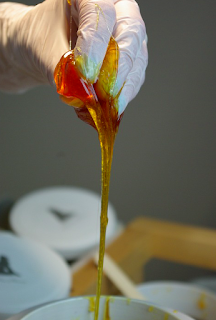The pure erotics of Brazilian Waxing

One of the questions I often get asked when I talk about my research is how much longer I think the trend for full pubic hair removal will last. I’m hesitant to give an exact expiry date if I’m honest. But I think this question opens up into broader discussions about what impact social, political and economic change has upon our bodily surfaces, and how embodied ideals of womanhood and femininity can both shift and remain constant over time. More revealing than any answer I might be able to give about the potential longevity of the Brazilian wax, is the asking of the question itself. It demonstrates an understanding of pubic hairlessness as ‘current’, constructed, transitory, and it encourages conversation about where the norm has originated from, and why women in particular feel pressured to conform to it. My Google Alerts notified me recently of an online survey examining men and women’s pubic hair grooming preferences, undertaken by Cosmopolitan.com , and suggesting that p
